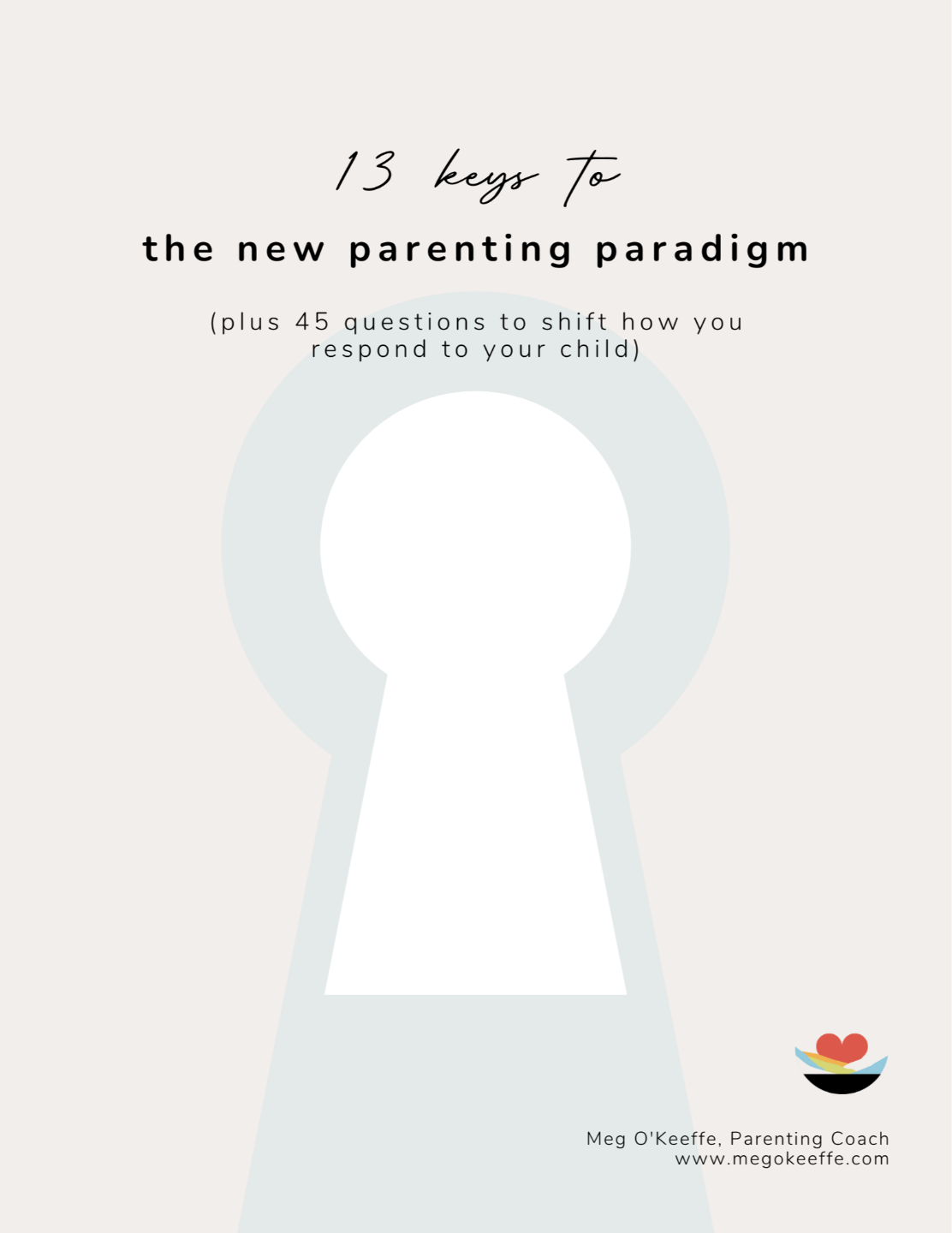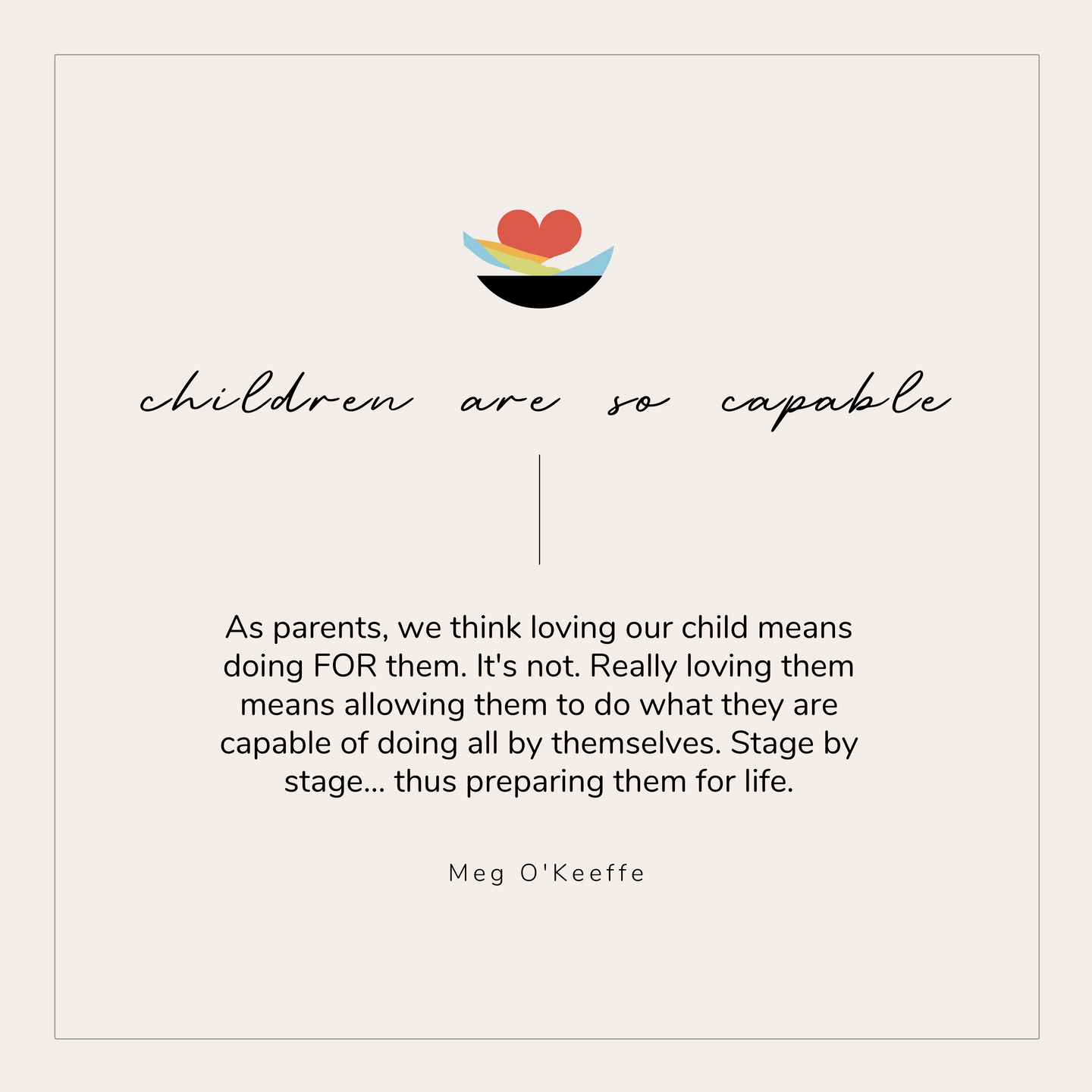13 Keys to the New Parenting Paradigm
Plus 45 powerful reflection questions to help you respond with clarity, emotional steadiness, and conscious leadership, even in the hard moments.
Receive the Free Guide
We must begin to see our children through a new lens, because often, it’s our thoughts and interpretations about their behavior that fuel the very struggle we’re facing.
Let’s get to the root of the tension between you and your child, not just apply quick-fix strategies that work for a moment, only to leave you stuck in the same cycles.
When children express their big feelings through challenging behavior, it’s easy to feel overwhelmed, to freeze, or default to the familiar parenting patterns we grew up with, leaving us feeling frustrated and like we're failing as parents.
But it doesn’t have to stay that way.
Together, we can shift the dynamic, break the old patterns, and create more ease, connection, and confidence in your parenting.
Before becoming a parent, did you have an idyllic vision about what it would be like?
Most of us do...
With good intentions, we expect to be parents who raise kids that are easy, well-behaved, happy and successful.
But in those first several years, reality kicks in: parenting is WAY harder than we ever expected. We find ourselves in the same uncomfortable (awful feeling) situations, losing our cool, and wondering how everyone has it all together, except us...
Here’s the thing, the traditional model of parenting (that many of us were raised in) just doesn't work for us or our kids.
It’s based on thinking we must have authority over them, dominating and disciplining them into being “good” and inherently creating power struggles, conflict, and disconnection. Or the opposite, allowing them to do "whatever they want" imposing our own lack of boundaries onto our kids producing anxiety and ultimately, wounded adults.
The New Parenting Paradigm is much different, it's based on Conscious Parenting and the Montessori Parenting philosophy.
It's an approach for parents that helps recognize and rectify the parents own limitations in order to become worthy of the child. This challenges our own areas in need of healing. Once we realize our kids are here as OUR greatest teacher, we can drop the false idea that we are here to teach them and instead guide them toward becoming independent, confident, resilient and empowered adults. Actually preparing them for life!
Here's a bit about traditional discipline (the old parenting paradigm)...
We think we're teaching them...
- Respect for authority and hierarchy
- Rules, order & organization
- Self-control
- That there are punishments for their actions
- To “pay” for their “crimes”
- To remember their mistakes and think twice next time
- To be 'good'
What we're actually teaching them...
- That authority and hierarchy breed respect - they will end up craving this when they are older
- Rules are to be feared and therefore either blindly followed or bent through lies or deceit
- Order and organization is super-imposed and externally determined
- Self is controlled by others
- That failure, mistakes and natural flaws are to be avoided at all costs
- That they are 'bad' and sent away for making adults uncomfortable
- Shame, guilt and regret at the memory of their errors
- Being good means burying your true self to be accepted. Use of force, anger, and inflicting harm on yourself and others result in compliance.
The first session with Meg had me in tears! The lesson was a perfect reminder of how my daughter is my teacher.
— DR. NICOLE
I see changes in our family that continue to amaze me.
— AMANDA
This work is life changing. Our family is flourishing.
— JANINE
More EndorsementsCarl Rogers believed we’re all born with the raw ingredients of a fulfilling life. We simply need the right conditions to thrive. Just as a sunflower seed, once planted in rich soil and given water and sunshine, will grow into a strong and healthy flower, all humans will flourish in the appropriate environment. A sunflower seed does not have to be shaped away from its dark tendencies, nor does it have to reach a difficult compromise between its vile true impulses and its reality. Instead, given the appropriate environment, it will grow into a beautiful flower.
Rogers believed that each person is born with an innate sense, a gut feeling, that allows us to evaluate whether an experience is good or bad for us. We all need to be loved, liked, or accepted by people around us. As children interacting with our parents, we learn early on to value the feeling that they value in us and we gain a sense of self-worth. Conditions of worth can become part of who we think we ought to be. As a result, we can become alienated from our genuine feelings and strive to actualize a self that is not who we were meant to be. A person who dedicates himself to such goals might be successful by outward appearances but might feel utterly unfulfilled. Such an individual might be able to check off all the important boxes in life’s to-do-lists and complete all that he or she is supposed to do, but never truly feel happy.
To remedy this situation, Rogers believed that the person must reconnect with his or her true feelings and desires. He proposed that to achieve this reconnection, the individual must experience a relationship that includes three essential qualities; unconditional positive regard, empathy and genuineness. We can help others by being present for them as the authentic individuals we really are.
The three essential ingredients of healthy human relations are unconditional positive regard, empathy and genuineness.











